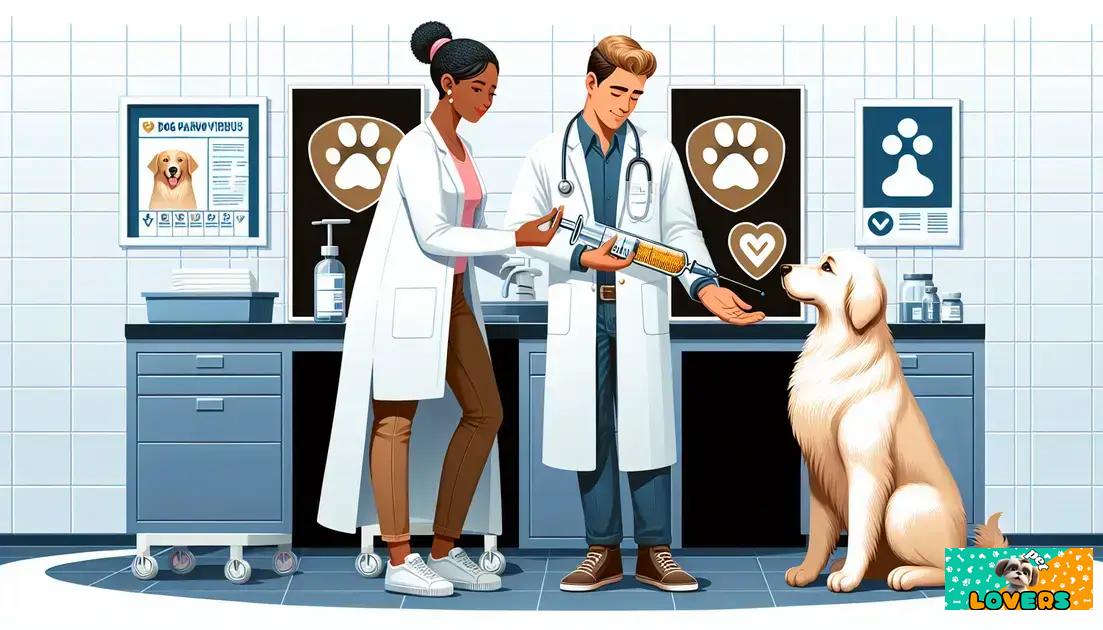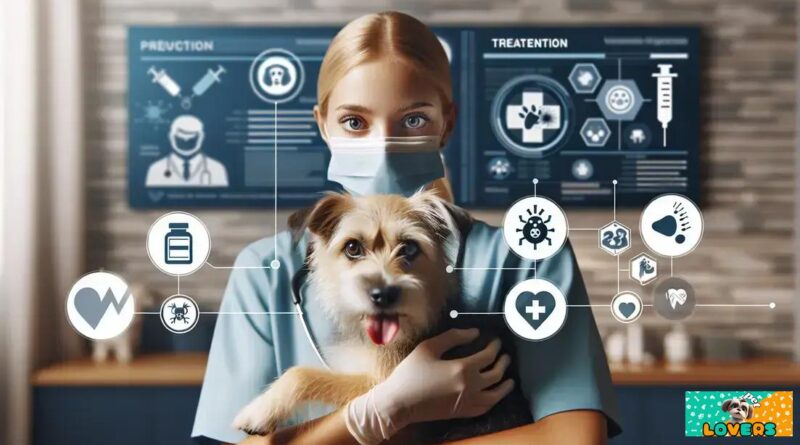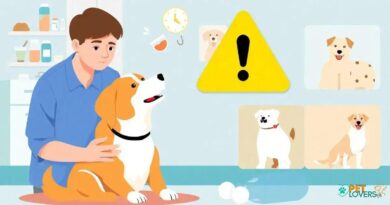Parvovirus in Dogs: Protect Your Pet from This Deadly Virus
Parvovirus in dogs is a highly contagious virus that can be fatal if not treated promptly.
This disease primarily affects puppies and unvaccinated dogs, leading to severe gastrointestinal distress.
As a dog owner, understanding this virus is crucial to ensuring your pet’s health and safety.
In this article, we will cover what parvovirus is, how to prevent it through vaccination and proper care, and the important treatment options available if your dog contracts this virus.
Understanding Parvovirus and Its Symptoms
Understanding Parvovirus and Its Symptoms: Parvovirus is a severe virus that most commonly affects puppies. This viral infection targets the intestines, causing symptoms such as severe vomiting, diarrhea, and lethargy.
The diarrhea often looks like it contains blood, which is a critical indicator of the disease. When a dog is infected, they may also exhibit loss of appetite and fever. Pet owners should be vigilant! If you notice any of these symptoms in your dog, it is essential to consult a veterinarian immediately.
Early intervention can drastically improve recovery chances. Understanding these symptoms ensures you can act quickly and help your pet recover efficiently.
Preventing Parvovirus: Vaccination and Care

Preventing Parvovirus: Vaccination and Care: Vaccination is the most effective way to prevent parvovirus in dogs. Puppies typically receive a series of vaccinations starting at six to eight weeks of age, with booster shots given until they are about 16 weeks old. It’s crucial to ensure your puppy is fully vaccinated before exposing them to other dogs or public places.
Alongside vaccinations, good hygiene practices are essential. Always clean your dog’s living area and avoid contact with unvaccinated dogs to minimize exposure. Regular check-ups with the vet can also help in early detection and ensuring your dog’s vaccines are up to date.
Maintaining a healthy diet and keeping your dog’s immune system strong are additional steps to help prevent parvovirus.
Treating Parvovirus: What Pet Owners Need to Know
Treating Parvovirus: What Pet Owners Need to Know: If your dog is diagnosed with parvovirus, immediate veterinary care is essential. Treatment often involves hospitalization, where the dog can receive intravenous fluids to prevent dehydration and medications to control vomiting and diarrhea.
Supportive care is vital, as it helps maintain the dog’s strength during recovery. Some dogs may also require blood transfusions if their condition is severe. The treatment process can be lengthy, and pet owners must be prepared for possible complications.
It’s crucial to follow your veterinarian’s instructions closely and provide a clean, stress-free environment for your recovering pet. Monitoring their condition regularly is key to ensuring a safe recovery.
In Conclusion: Safeguarding Your Dog Against Parvovirus
Parvovirus is a serious disease that can have devastating effects on dogs, especially puppies. Understanding its symptoms helps in early detection.
Preventative care, including timely vaccinations and good hygiene, is essential in protecting your pet. If your dog does contract parvovirus, swift treatment and supportive care are critical for recovery.
As a pet owner, staying informed and proactive can make all the difference. By following the guidelines outlined in this article, you can help safeguard your furry friend against this virus.
FAQ – Frequently Asked Questions About Parvovirus in Dogs
What is parvovirus in dogs?
Parvovirus is a highly contagious viral infection that primarily affects puppies and unvaccinated dogs, causing severe gastrointestinal issues.
What are the symptoms of parvovirus?
Symptoms include severe vomiting, diarrhea (often bloody), lethargy, fever, and loss of appetite.
How can I prevent my dog from getting parvovirus?
Vaccination is the most effective method. Ensure puppies receive their vaccinations on schedule and practice good hygiene.
How is parvovirus treated?
Treatment typically involves hospitalization for intravenous fluids, anti-nausea medications, and supportive care. Early intervention is crucial.
Is parvovirus deadly?
Yes, parvovirus can be fatal, especially in young puppies or unvaccinated dogs. Prompt treatment increases chances of recovery.
Can adult dogs get parvovirus?
Yes, unvaccinated adult dogs can contract parvovirus, though they may have a better chance of recovery due to a stronger immune system.





